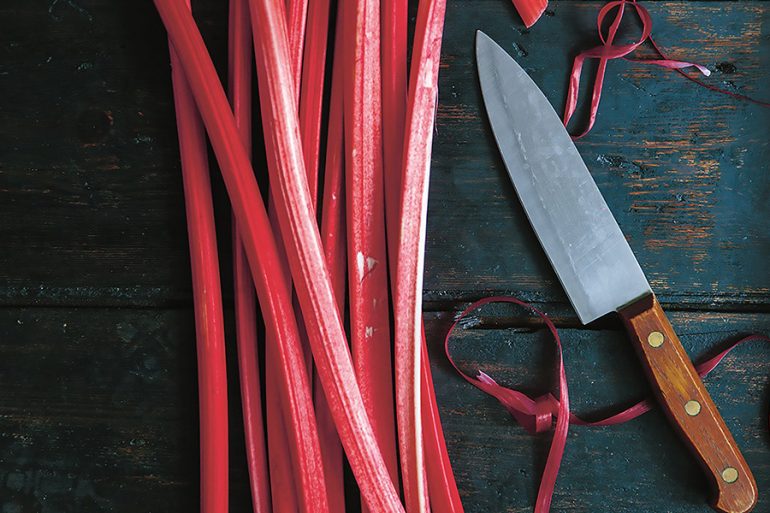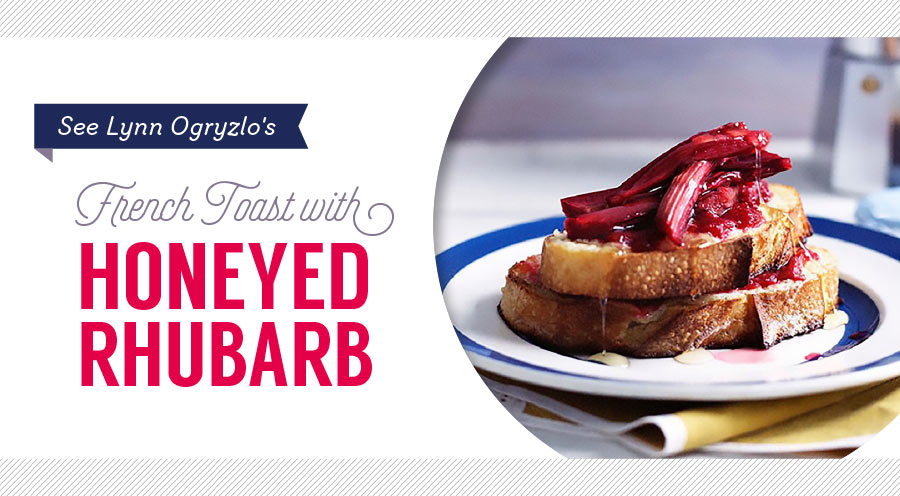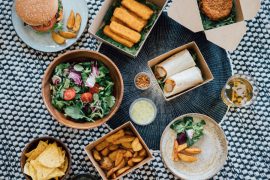If you were thinking that Ontario rhubarb was one of the first crops out of the ground every spring and it’s harvested along with strawberries so you can make delicious pies, you wouldn’t be totally wrong. But there’s something more exciting to know about it.
Did you know that in England, there’s such a thing as forced rhubarb? Yes, and it’s harvested from January to April, right before the traditional rhubarb season. As with most delicious foods, it was discovered completely by accident. The town of Wakefield in Yorkshire, England is part of the nine-square mile Rhubarb Triangle and, as the story goes, a workman digging a ditch piled some soil over a patch of rhubarb roots. Weeks later when the soil was removed they found young, tender, brightly coloured shoots that were more succulent, tender and sweet than traditional rhubarb.
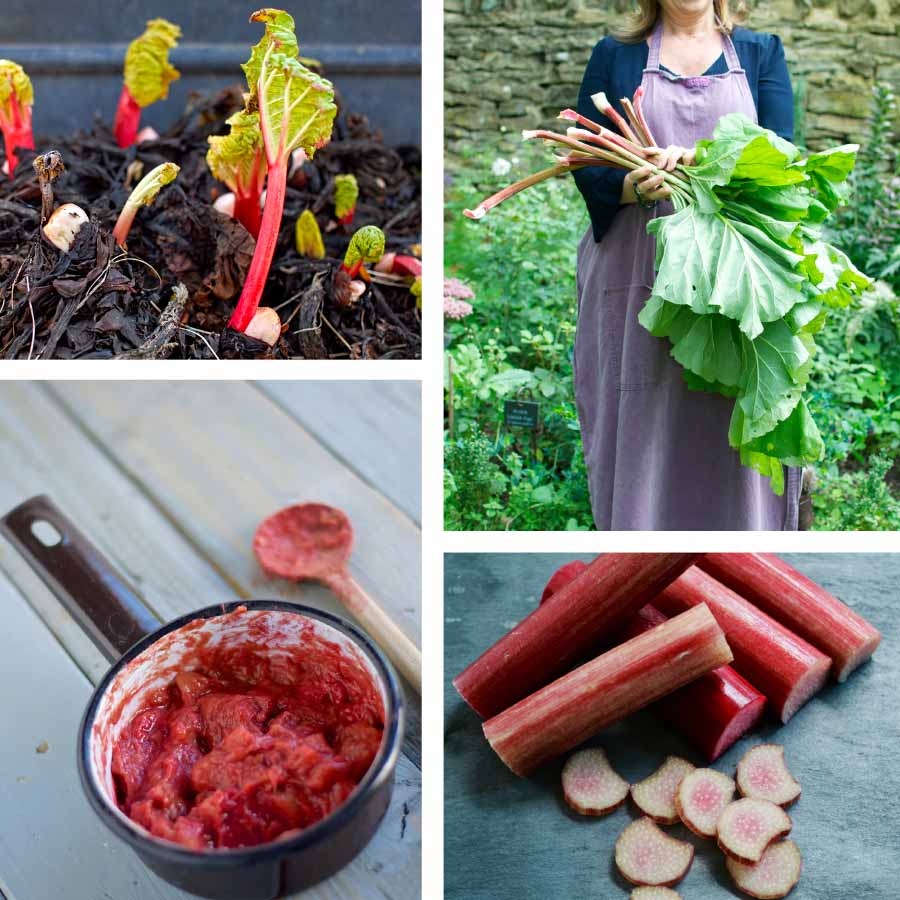
Today, throughout the Rhubarb Triangle, Yorkshire Forced Rhubarb is grown in old mushroom sheds or specifically designated buildings. It’s used in much the same way as Ontario rhubarb, but because it’s harvested earlier, it’s married with apples and made into fruity crumbles, moist yogurt cakes, mouth-watering tarts and savoury chutneys that go so well with pork or duck.
Although rhubarb is technically a vegetable, we typically enjoy it more as a dessert. Soon you’ll find the tall, red stalks at your famers’ market. Look for firm, crisp, plump stalks and perky leaves with good colour. Never eat the leaves: they’re poisonous.
The traditional way to cook rhubarb is to wash the stalks and cut them into small pieces, and then stew them until tender. There is no need to add much water as rhubarb already contains a great deal of it that comes out during cooking. While still hot, sugar is added to balance out the acidity. There’s no shortage of recipes available thanks to social media and foodies – even for roasted rhubarb…. I get the concept; caramelized roasted root vegetables are delicious, but through experimentation I can tell you that it just doesn’t seem viable. You end up with a baking sheet full of water and soggy rhubarb. Like roasting strawberries, don’t be fooled.
When I was a small child, I’d steal a cup of sugar and sit in the rhubarb patch behind my grandmother’s garage eating to my heart’s content. Sitting there for hours in the quiet of the garden, I’d hear creaking and snapping noises all around me. My grandmother told me that rhubarb screams as it grows. She was referring to the rapid almost an inch per day growth of rhubarb and the noises it makes as it shoots up.
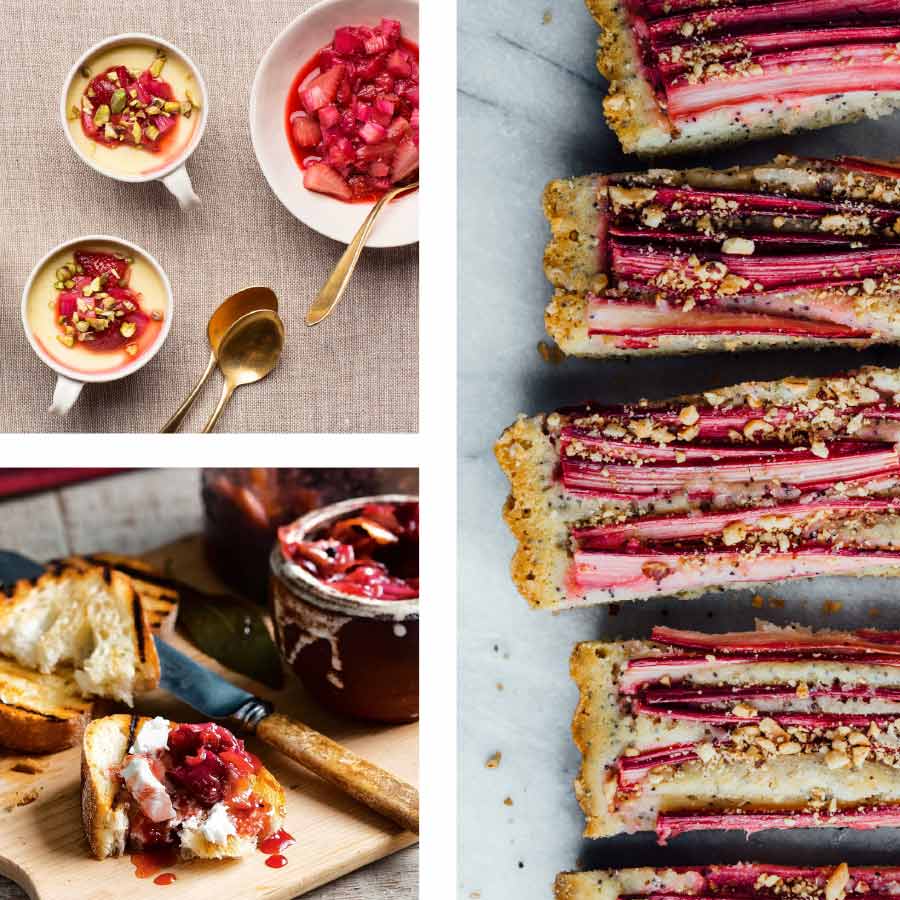
Besides adding a delightful tartness to otherwise sweeter desserts, rhubarb’s tart flavour cuts through the richness of meat, and especially cheese, very well. That’s why some courageous chefs recommend picked rhubarb on a cheese platter. Personally speaking, I think it would be lovely with rich fatty cheeses, but if you’re planning a wine and cheese event, I would not recommend pairing rhubarb with wine.
I called a few farmers and no one has any plans to grow forced rhubarb in Ontario – pity. For now, Yorkshire Forced Rhubarb will remain a delicacy as rare as white truffles. But it doesn’t have to be this way. When you’re at your farmers’ market this spring, buy a bundle of fresh rhubarb and start a conversation with the growers about how much you would like to taste and experiment with forced rhubarb. It’s worth a try, isn’t it?
by Lynn Ogryzlo
Lynn Ogryzlo is a food, wine and travel writer, international award winning author and regular contributor to Look Local Magazine. She can be reached for questions or comments at www.lynnogryzlo.ca

